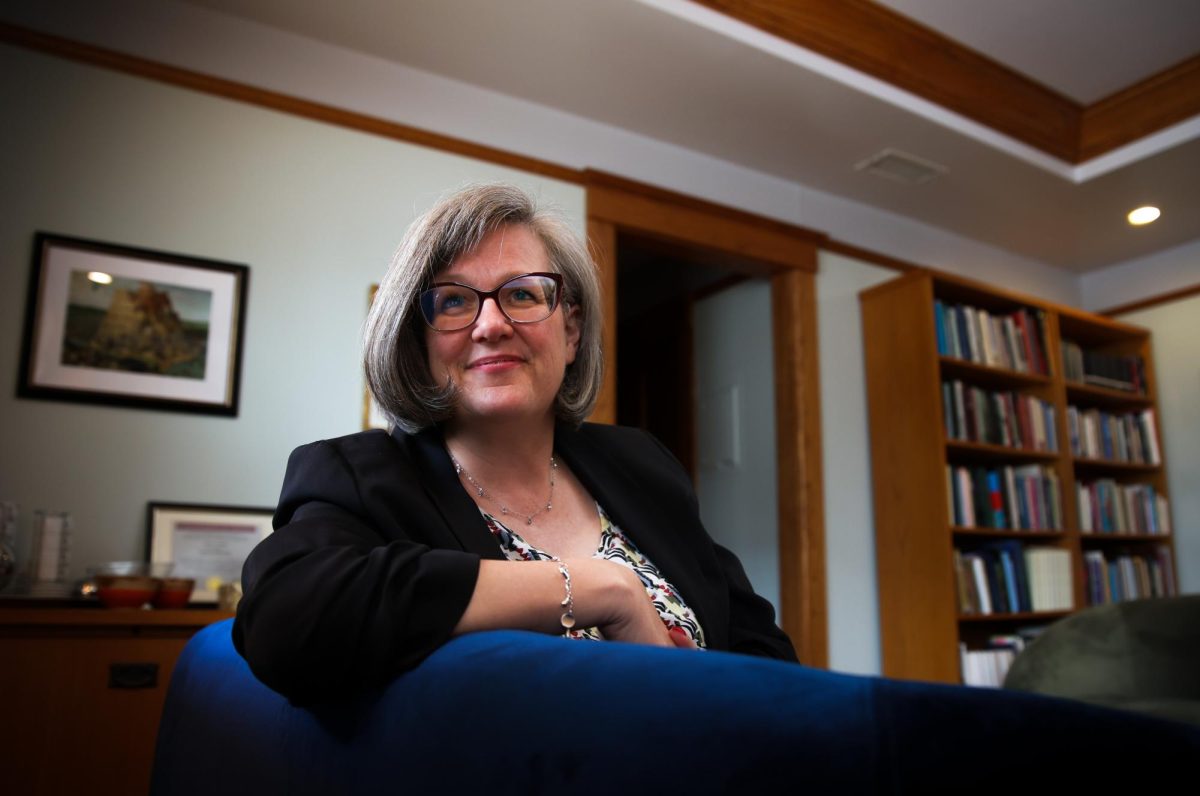By Andy Pavey
paveyand@grinnell.edu

On Wednesday Sept. 26, religious historian Dr. Kathryn Lofton presented a Gates Lecture on the intersection between religion, American consumerism and pop culture. Established in 1913 to honor George A. Gates, the College’s second president, the goal of the Gates Lecture is “to bring to the campus the very best of modern thought,” according to the College’s website. Grinnell hosts one to two Gates Lecturers every year. Lofton’s talk entitled “Consuming Religion: How Ivory Soap, Kim Kardashian, and Goldman Sachs Explain this Modern Age,” explored the connection between consumption and spirituality in America.
Professor Tyler Roberts, religious studies, discussed the relevance of Lofton’s work in the context of the College as well as in a globalized world, said, “If we think about what organizes our lives today, two big ways … are consumption and corporations. That is, corporations have a huge amount of power. … People sometimes talk about the fact that the nation-state is obsolete, and the things that are holding us together are international conglomerates and corporations. … So what kind of role do [they] play in informing us and enforcing how we live our lives?”
Lofton, who carried out fieldwork with Goldman Sachs while writing her second book, consider them crucial to understanding how religion has found a foothold in 21st century life. “Most of us are hardcore consumers, and we get our identities partly from the way we consume,” Roberts said. “What I want people to see is a scholar of religion who is talking about [consumerism] in new and unorthodox and interesting ways that might help us … think about religion differently, think about ourselves as consumers, and think about how consumption [affects] how we create ourselves as moral and spiritual people.”
Roberts stressed that Lofton offers a fresh perspective to the modern conversation surrounding religion, talking about the changing form of theology in an increasingly secular world. Using unconventional examples from the center of public consciousness, Lofton illustrates the ways in which consumers consider their possessions to be an integral part of their identity. Roberts cited her first book, “Oprah: The Gospel of an Icon,” as an example of this.
“[Lofton] focuses … on both religious culture, things you would think of as obviously religious, but also a lot of things that you wouldn’t think about … Her first book was on Oprah. She’s talking about Oprah as kind of a spiritual figure, but she’s also very interested in consumerism. Oprah endorses so many things. [She’s] a kind of guru who, through our consumption, shows us how to live good, fulfilled lives … [Lofton] can talk about really obvious religious history things … [as well as] what it’s like to be religious in today’s world, where religion isn’t always institutional, and examine the forms it takes in all areas of our lives.”
When asked what she’d like Grinnell College students to take away from her lecture and her work as a whole, Lofton replied, “I want them to walk away thinking about what music they like and what TV shows they watch and what brands they buy and how they choose to spend their days. I want them to think about how those things — what they like and do — define who they are and what values they support. Students often imagine the goal of life is something abstract or faraway. The religions of the world argue again and again that what you are is what you do in small increments, in small choices, in specific acts.”






















































